The Benefits of Ginger Tea During the Cozy Season
Ginger is a wonderful remedy for chills or scratchy throats, so the ginger green tea we have on the menu is perfect for the cold time!
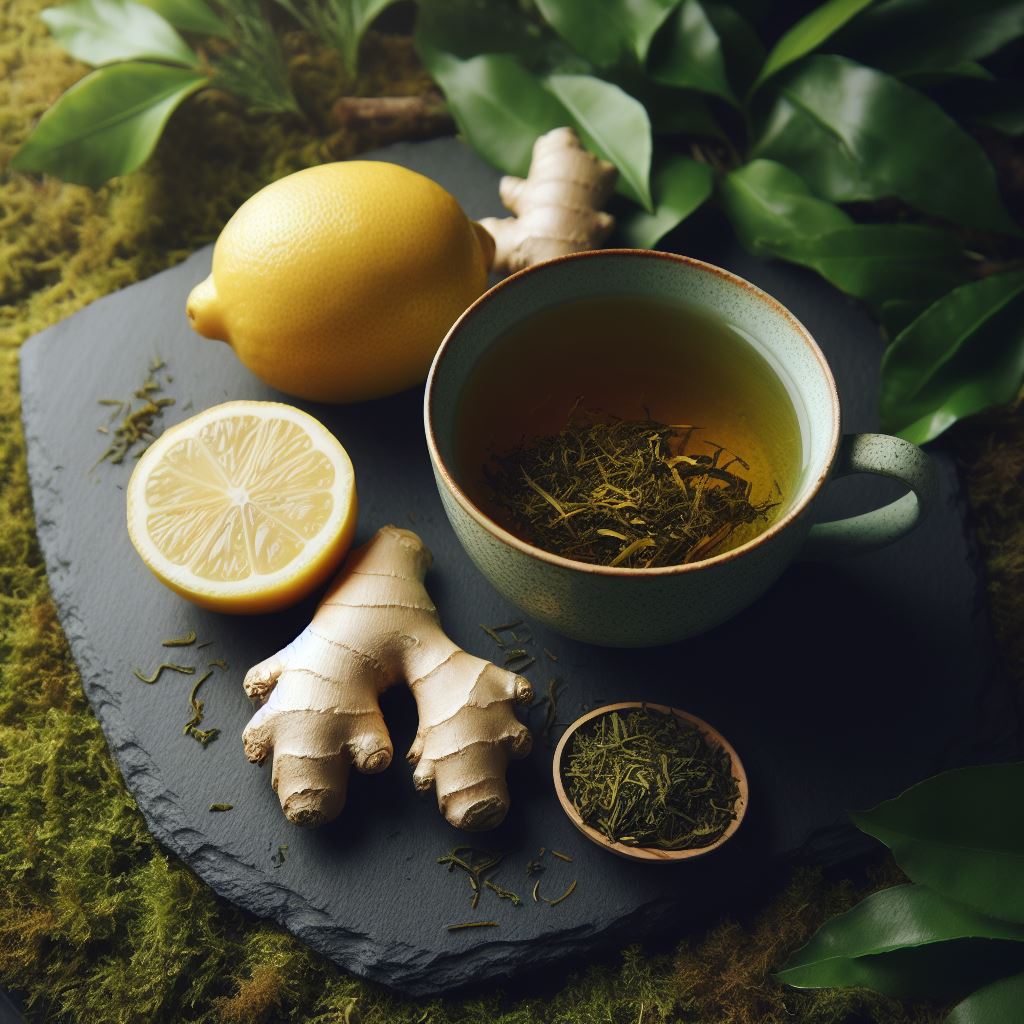
As the leaves start to change and the air becomes crisp, there's nothing quite like a warm, comforting beverage to take the chill out of the season. One such drink that has been cherished for centuries, especially during the colder months, is ginger tea. Combining the earthy notes of green tea with the warmth of ginger and the zesty kick of lemon, this delightful infusion is not only a treat for your taste buds but also a natural elixir with a host of health benefits.
Ginger Tea and Its Health Benefits
Ginger, a knobbly root known for its distinctive flavor, has long been used for its medicinal properties. When incorporated into a soothing cup of tea, it offers a range of mild health benefits, making it a perfect choice during the cozy season.
1. Digestive Aid
One of the most well-known benefits of ginger is its ability to ease digestive discomfort. It helps alleviate nausea, bloating, and indigestion, making it an ideal companion after a hearty autumn meal. Whether you've indulged in pumpkin pie or roasted vegetables, ginger tea can help soothe your stomach.
2. Immune Boost
Ginger is rich in antioxidants and has anti-inflammatory properties, which can help bolster your immune system. During flu and cold season, a warm cup of ginger tea can provide an extra layer of protection against common ailments.
3. Pain Relief
For those who suffer from seasonal aches and pains, ginger tea may offer some relief. Its anti-inflammatory properties can help reduce muscle and joint pain, which can become more pronounced as the temperature drops.
4. Stress Reduction
As the days grow shorter and the year winds down, stress can take its toll. The soothing warmth of ginger tea and the calming effect it has on the senses can help you relax and unwind. It's the perfect antidote to the stresses of the modern world.
Ginger's "Hot" Nature in Traditional Asian Medicine
Beyond its health benefits, ginger holds a special place in traditional Asian medicine, where it is considered a "hot" ingredient. This classification is based on the concept of "yin" and "yang," where foods and herbs are categorized as either warming (yang) or cooling (yin). Ginger is considered yang because it's believed to have a warming effect on the body.
In traditional Chinese medicine (TCM), ginger is often used to balance the body's internal energy, or qi, and improve circulation. It is recommended in the winter months when the cold weather can disrupt the body's harmony. This "hot" nature of ginger is thought to counteract the coldness of the season and restore balance.
In Ayurveda, the traditional medicine system of India, ginger is also considered "hot." It's used to stimulate digestion, detoxify the body, and alleviate cold-related symptoms, aligning with the belief that consuming warming foods helps maintain overall health and vitality during the colder months.
As you sip your steaming cup of green tea with ginger and lemon, not only are you indulging in a delicious and comforting beverage, but you're also enjoying a centuries-old remedy with a wealth of mild health benefits. Embracing the "hot" nature of ginger as an ingredient in traditional Asian medicine, you can welcome the cozy season with open arms, knowing that you're nurturing your body and soul with every sip. So, as the temperatures drop and the leaves continue to fall, make ginger tea your companion for a warm, cozy, and healthy season.

Even angels know about the warming properties of our ginger tea, or why do you think they are able to fly around dressed like this?
New Stuff
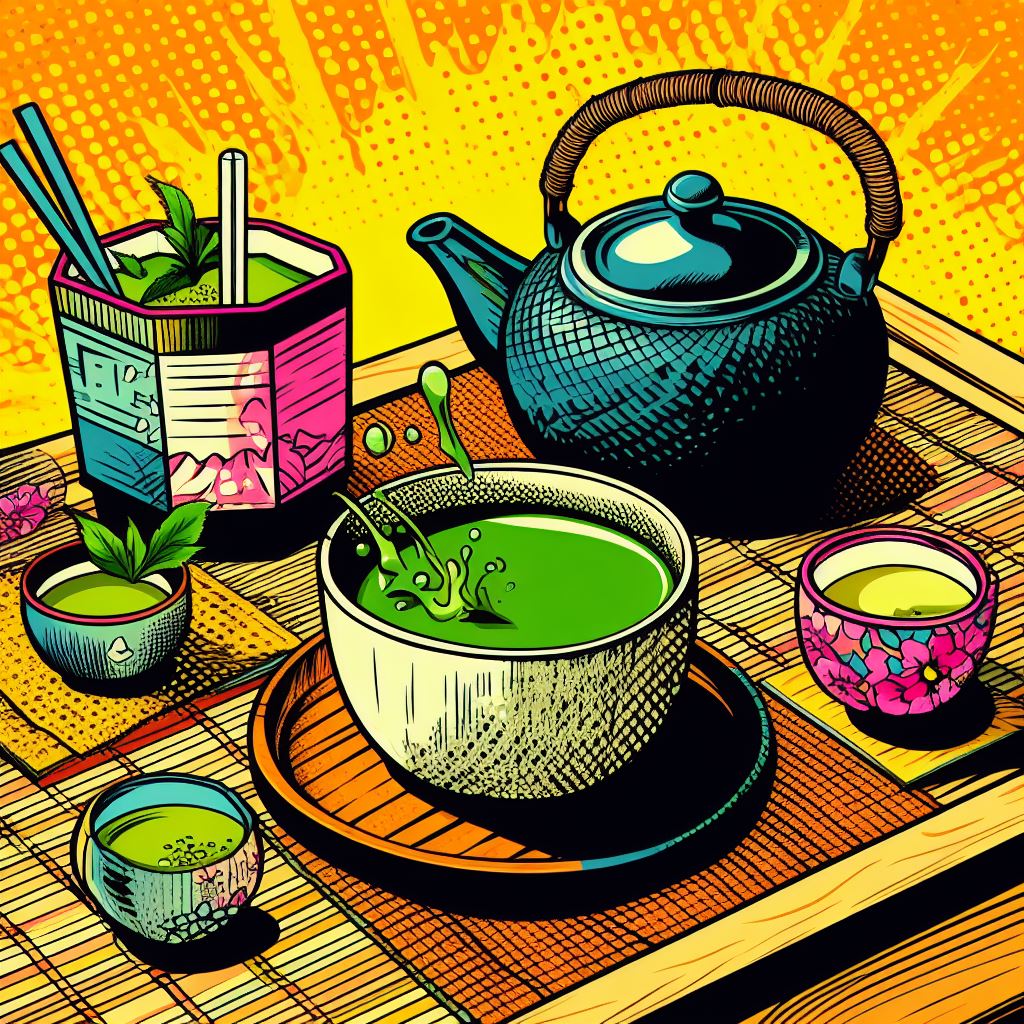 | 3 Common Grades of Matcha Matcha, a finely ground powder of specially grown and processed green tea leaves, has become a global phenomenon. |
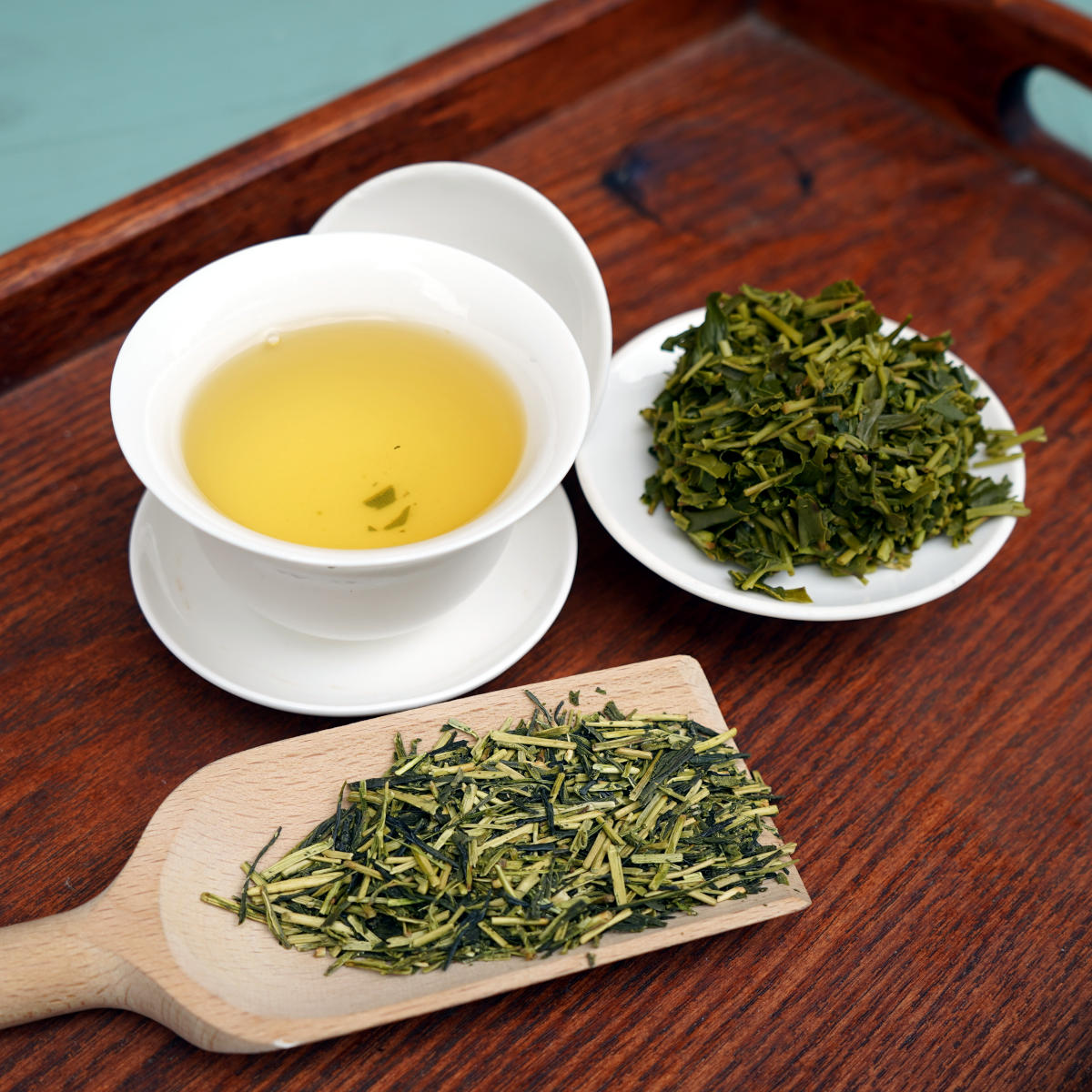 | Kukicha: A Unique Japanese Tea Kukicha is naturally low on caffeine, but still rich in taste. That makes for a perfect afternoon and evening tea. |
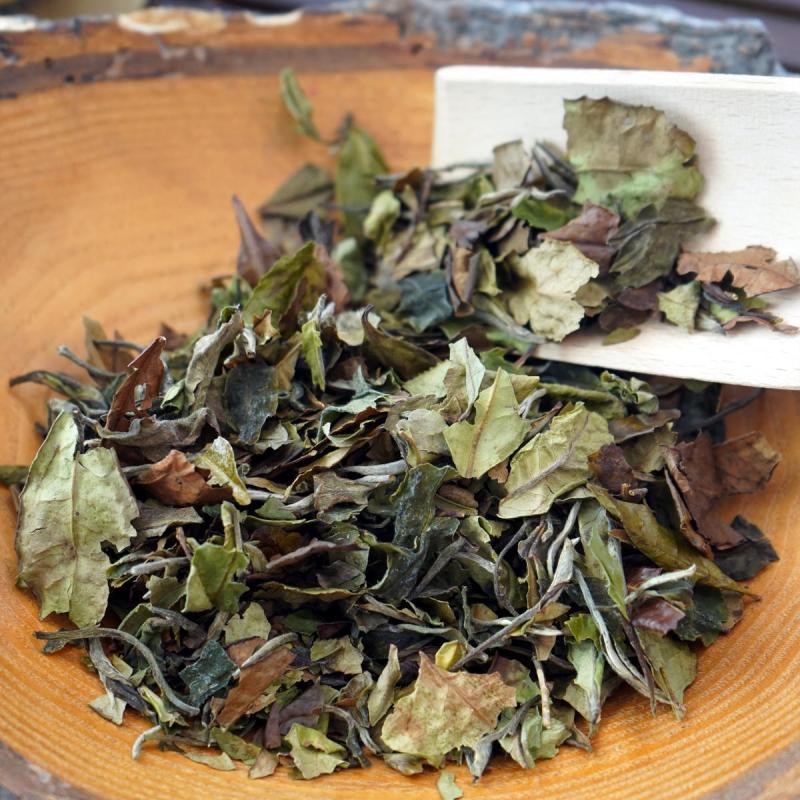 | White Tea White tea, a name synonymous with purity and elegance, beckons tea lovers seeking a subtle yet captivating experience. |
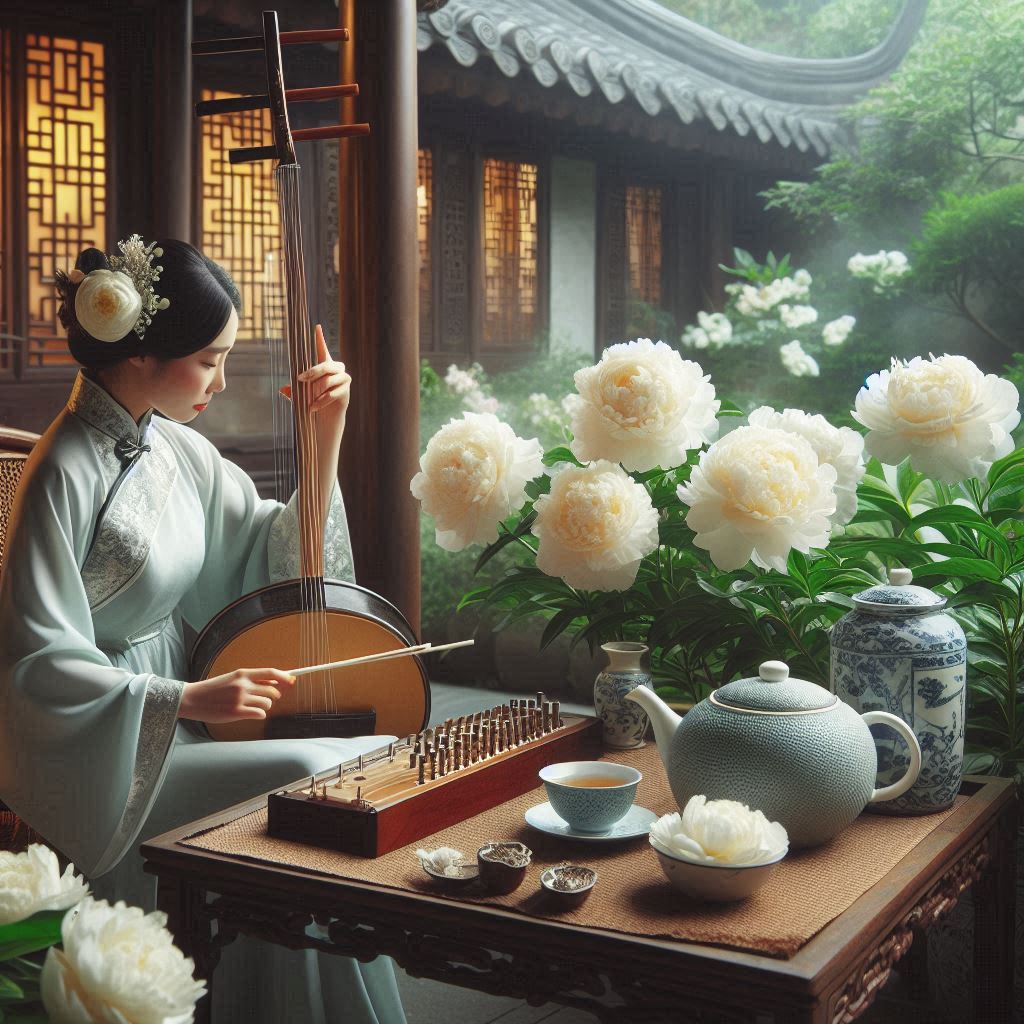 | Unveiling the Delicate Elegance of Pai Mu Tan White Tea Have you ever craved a tea that embodies pure refinement? Look no further than Pai Mu Tan, a white tea celebrated for its delicate taste and minimal processing. |
 | Assam Tea A bold brew from the foothills of the Himalayas and one of the most popular teas. |
 | Opening Times New opening times from 1st of November 2023! Mon - Thu 09:30 AM - 05:30 PM, Fri & Sat 9:30 AM - 07:00 PM ... Sun closed |
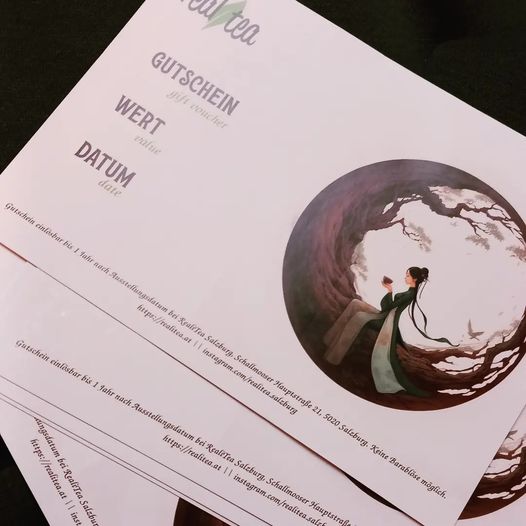 | When sombebody vouches for a gift they buy a gift voucher. Now at RealiTea! |
